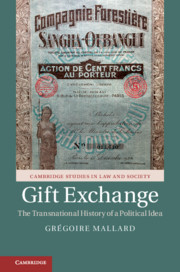Acknowledgments
The genesis of this book is a perfect illustration of the role of serendipity in the process of formulation and reformulation of research questions. Little did I know that I would follow in the footsteps of Marcel Mauss’s acclaimed biographer Marcel Fournier and write a book on Mauss’s anthropology of the gift when, ten years ago, my wife, Eléonore Lépinard, and I rented his Montreal apartment for a year and worked under the gaze of the bronze bust of Emile Durkheim that he had placed on his desk. With this book, I have confirmed my wife’s suspicion that I remain inexorably fascinated by great dead white men – like Honoré de Balzac, Jean Monnet, or indeed Marcel Mauss – and that, instead of writing a book titled Queering Marcel Mauss – a task too intimidating, although highly relevant – I would spend several years researching Mauss’s role within the group of solidarist and socialist thinkers who participated in the political affairs of the last century. For that, I will blame Marcel Fournier, as it is in his library that I first read Mauss’s political writings, where I first found the missing link between the anthropology of gift-giving practices, the modern forms of international credit exchanges, and the intellectual history of the concept of solidarity that I was looking to explore. And I will thank Eléonore, who accepts me with all my deficiencies, and whose companionship remains a proof that gifts can be given without always being immediately given back.
Unfulfilled intellectual interests never die, and I found with this story an opportunity to revive an old flame of mine: I first became interested in the French nebula of solidarist intellectuals and sociologists during a class taught by Vincent Viet more than fifteen years ago at the École Normale Supérieure (Cachan) on the history of labor relations in France. These young sociologists’ intellectual passion, political involvement, and thirst for emancipation formed a riveting narrative of collective ambition and accomplishments. But, in the following decade, I rarely returned to the belle époque and interwar period. Instead, I wrote my first monograph, Fallout, on the changing international legal environment, evolving conceptions of sovereignty, and new forms of contractual agreements that regulated the nuclear trade in the second half of the twentieth century. I largely ignored the interwar period, as there was very little to regulate in terms of nuclear trade. Still, as Fallout focuses on a group of thinkers and politicians gathered around Jean Monnet, one of the main architects of the postwar European and global nuclear orders, I ventured from time to time into Monnet’s early attempts to establish a financial and commercial European order within the League of Nations. As I researched the role of Jean Monnet and other important figures (like Konrad Adenauer and John Foster Dulles) in the (failed) establishment of an interwar financial order, I stumbled again on these French solidarists whose involvement in issues of international finance I had wanted to study. I also discovered that some characters who, like Jacques Soustelle, had exercised great responsibility in French postwar nuclear policy, had in fact started their career as PhD students working under the supervision of Mauss. Such oddities begged for more research.
Of course, the direction of this socio-historical inquiry has taken many turns, and what started as a book on the solidarists, European solidarity, and financial history, ended up as a book on Marcel Mauss, his essay The Gift, his followers, international law, and financial history up to this day.
Many colleagues and friends helped me navigate these various twists, and I would like to thank especially: Robert Mauss, who authorized me to consult Mauss’s archives, and Christophe Labaune, who helped me explore the rich material at the Collège de France, as well as the staff of the Archives Nationales in Saint Denis, where I consulted the papers of Albert Thomas, Léon Blum, and Jacques Soustelle in particular. Jean-Michel Servet generously told me about the adventures of the Maussian economists around the French Caisse des dépôts et consignations, and he also read the whole manuscript and provided very useful feedback. Very special thanks go to Mohammed Bedjaoui, who opened his home to me, and gave me more than ten hours of recorded interviews and a presentation of his private papers. I also owe special thanks to Filipe Calvao, Sheila Galvin, and Davide Rodogno, who took the time to read and comment upon an early draft of the whole manuscript in June 2016. Deval Desai and Pierre Pénet read the full draft, as the manuscript was nearing completion in March 2018 and they gave me incredibly constructive comments. Furthermore, graduate students and colleagues at the Graduate Institute gave me additional comments during the class “Marcel Mauss and International Relations,” which I gave at the Graduate Institute in spring 2017.
Additional thanks also go to all those who commented on parts of the chapters and/or who engaged in Maussian discussions: Kristin Avram, Gopalan Balachandran, Eric Brousseau, Alain Chenu, Leo Coleman, Ariel Colonomos, Mathew Craven, Yves Dezalay, Yvan Droz, Neil Gross, Marc Flandreau, Juan Flores-Zendeja, Marcel Fournier, Anna Gelpern, Neil Gross, Mitu Gulati, Terence Halliday, Volker Heins, Anne Holthoefer, Adil Khan, Marcelo Kohen, Dan Lainer-Vos, Claire Lemercier, Michael Loriaux, Frédéric Mérand, Alessandro Monsutti, Stephen Nelson, Reut Paz, Kim Priemel, Jérôme Sgard, Gregory Shaffer, Isabelle Shulte-Tenckhoff, Augustin Simard, Jean Terrier, and Christine Unrau. As always, Madeleine Arenivar did a superb job editing my prose; she should be praised for her patience. I would also like to thank my editor at Cambridge, Matt Gallaway, for being such a responsive, efficient, and positive fellow traveler in the process of transforming an inchoate manuscript into a real book.
At last, this book has been published in Open Access with the support of the Swiss National Science Foundation (grant # 10BP12_183395), and I would like to thank the organization for making its diffusion easier and wide.
